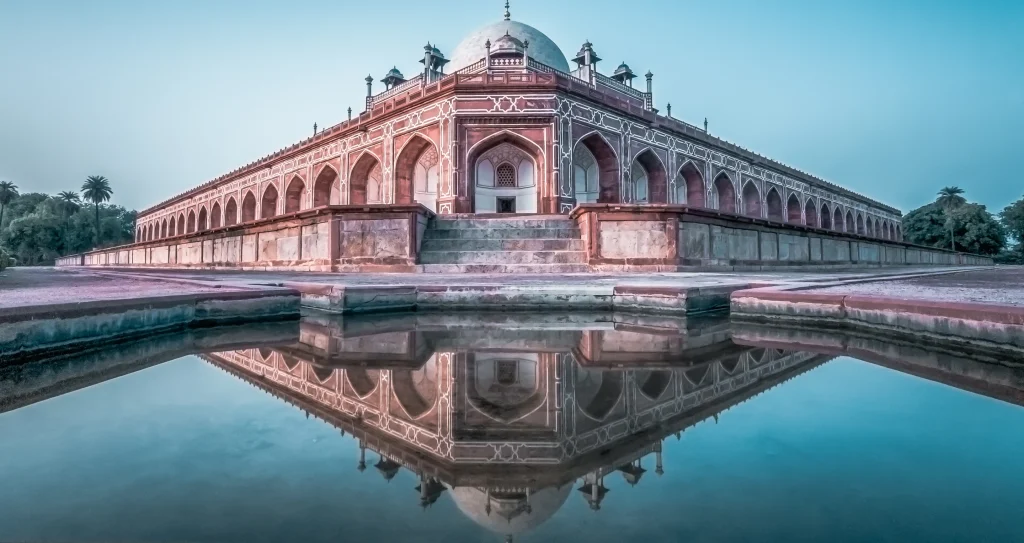Avoiding Scams and Safeguarding Your Trip in Delhi: A Comprehensive Guide for Tourists
Delhi, the vibrant capital of India, is a city that seamlessly blends the old with the new. From the majestic Red Fort to the bustling markets of Chandni Chowk, it offers a rich tapestry of experiences. However, like many major tourist destinations, it’s not without its pitfalls. Scams targeting tourists are unfortunately common. Understanding these scams and knowing how to protect yourself can ensure your visit remains memorable for the right reasons. Here’s a guide to help you navigate Delhi safely, including what to do if you encounter trouble.

Common Scams in Delhi
- Fake Tour Guides: Some individuals pose as official tour guides or travel agents, offering to show you around or arrange services. These guides often charge exorbitant fees or take you to overpriced shops.
- Overpriced Rides: Taxi and auto-rickshaw drivers sometimes overcharge tourists by not using meters or quoting inflated rates. In some cases, they might take longer routes to increase the fare.
- The “Helpful” Stranger: Beware of friendly strangers who offer unsolicited help. They might lead you to a particular shop or restaurant where you end up paying significantly more than expected.
- Cash Exchange Scams: Be cautious when exchanging money. Scammers may try to give you counterfeit currency or short-change you.
- Fake Charity Collectors: Individuals claiming to be collecting donations for charitable causes can be fraudulent. They often use emotional appeals to coax money from unsuspecting tourists.
The Value of a Local Contact
Having a reliable local contact can be invaluable in avoiding and managing scams. A trusted local contact, such as a friend, business associate, or even a verified concierge from your hotel, can:
- Provide Insider Knowledge: They can give you tips on how to identify and avoid common scams and offer recommendations for trustworthy services.
- Assist in Emergencies: If you find yourself in a difficult situation, such as being scammed or losing important documents, your local contact can help you navigate the local system and provide support or recommendations for official resources.
- Facilitate Communication: Language barriers can sometimes make situations more complicated. A local contact can help bridge communication gaps with vendors or authorities.
- Offer Reputable Recommendations: They can recommend reputable tour guides, reliable transportation options, and trustworthy places to exchange money.
How to Protect Yourself
- Verify Tour Guides and Services: Use established and reputable travel agencies or hotel recommendations for any tours or services. Verify credentials and reviews before engaging with any guide or agent.
- Agree on Fares in Advance: Before getting into a taxi or auto-rickshaw, ensure the fare is agreed upon or ask the driver to use the meter. Apps like Uber and Ola can also provide a safer and more transparent alternative.
- Stay Skeptical of Unsolicited Help: Politely decline help from strangers who approach you unsolicited. If you need assistance, seek help from official tourist information centers or your hotel staff.
- Exchange Money at Reliable Sources: Use official exchange counters at banks or authorized exchange bureaus. Avoid street money changers and always check the currency you receive.
- Verify Charitable Causes: If you wish to donate, choose established organizations with transparent operations. Avoid giving money to individuals on the street without verification.
What to Do If You Get Scammed
- Report the Scam: Contact the local police to file a report. Having a record can be useful for insurance claims or if you need to present evidence to your embassy.
- Contact Your Embassy: If you lose your passport or face serious issues, contact your country’s embassy or consulate in Delhi. They can assist with document replacement and offer advice on navigating the situation.
- Seek Legal Help: For significant scams or fraud, consulting a local lawyer might be necessary to understand your rights and options.
Losing Documents and Money: Steps to Take
- Report Lost Documents: Immediately report lost or stolen passports to the police and your embassy. They will guide you through the process of obtaining a replacement.
- Cancel Credit Cards: If your credit cards are lost or stolen, contact your bank or card issuer to report the loss and request card replacement. Most banks offer emergency card replacement services.
- Use a Fixed-Value Card: Consider using a prepaid fixed-value card for your daily expenses. These cards can be loaded with a set amount of money, helping you control spending and minimizing the impact if the card is lost or stolen. Fixed-value cards are widely available and can be obtained from banks or online financial services before your trip.
- Maintain a Backup: Keep a copy of important documents, such as your passport and credit card details, in a secure location. This can expedite the replacement process in case of loss or theft.
Additional Tips for a Safe Trip
- Stay Aware of Your Surroundings: Keep an eye on your belongings and be cautious of your surroundings, especially in crowded areas.
- Use Reputable Accommodations: Stay at well-reviewed and established hotels or guesthouses that offer secure facilities and can assist you if needed.
- Stay Connected: Keep in touch with friends or family and inform them of your whereabouts regularly.
By staying informed and utilizing the support of a reliable local contact, you can enjoy all that Delhi has to offer without falling prey to scams. Preparation and vigilance, coupled with local guidance, are key to a safe and enjoyable travel experience.

Comments
One of the finest and beneficial websites – lokal contact is something to promote as it helps citizens to build a network of their own through good wishes